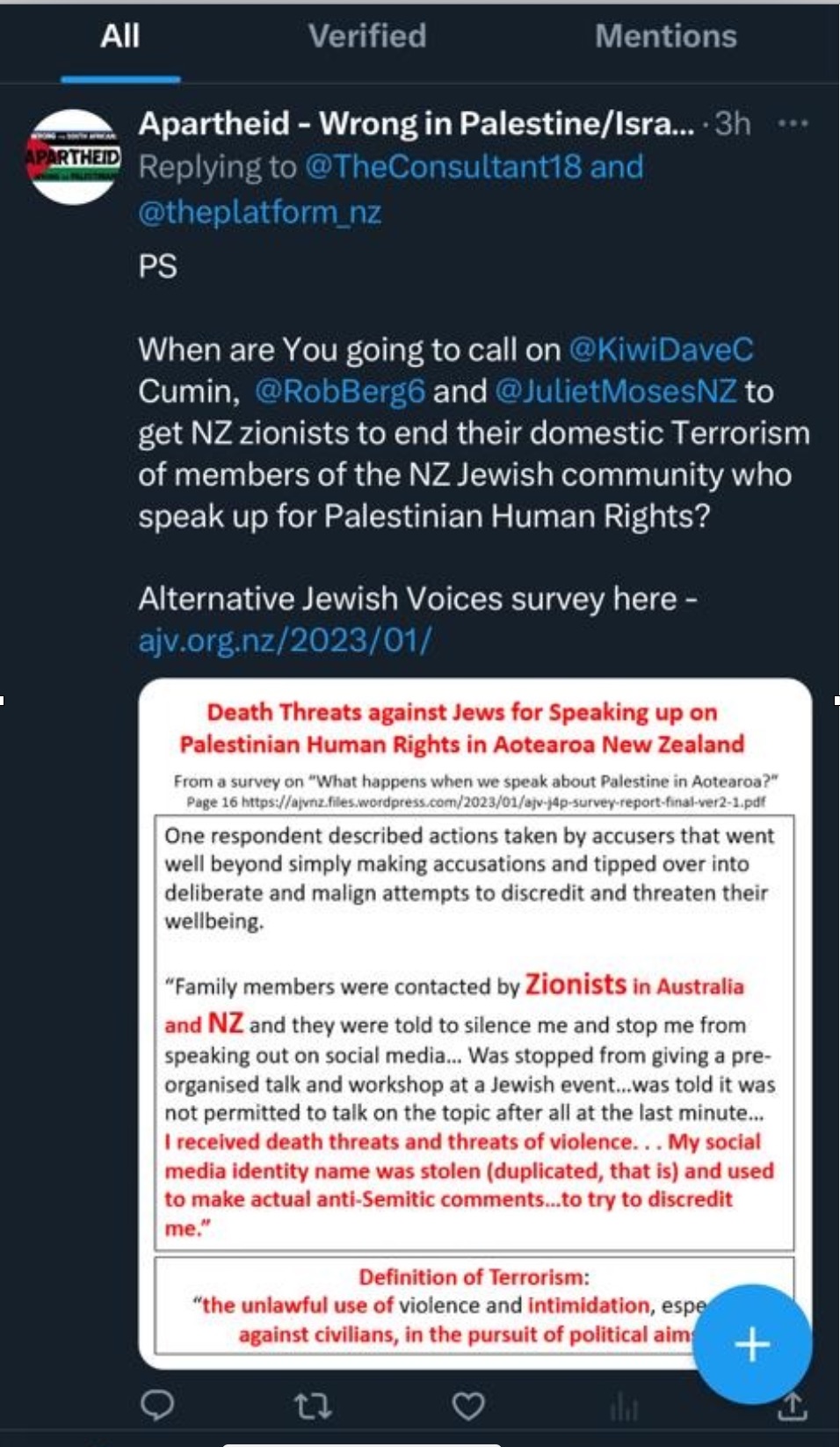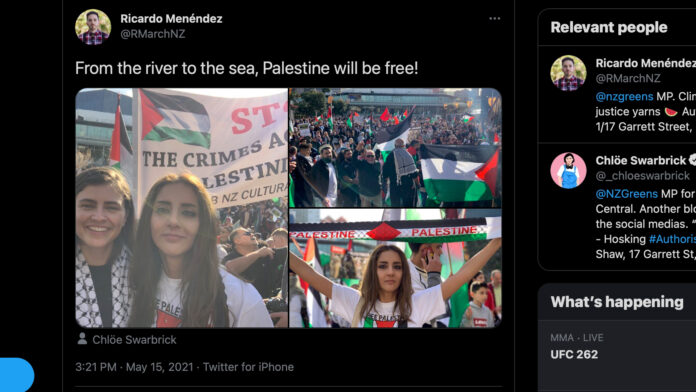In a recent tweet, Neil Scott, secretary of the Palestine Solidarity Network Aotearoa made the astonishing and libellous statement that ‘NZ Zionists are committing “domestic terrorism” against anti-Zionist people who identify as Jewish’ and named Jewish leaders, David Cumin, Juliet Moses and Rob Berg, as somehow bearing responsibility.
Evidently, an Alternative Jewish Voices survey claimed that death threats had been made against an anonymous respondent for speaking up on Palestinian Human Rights. Such unsubstantiated absurdities are probably best ignored. However, it is very concerning that politicians like Duncan Webb and Golriz Grahaman are willing to meet with Scott and AJV despite their wild allegations and history of antisemitism.
It’s ironic that the domestic terrorism accusation is levelled against those who seek to stand against actual terrorism. It’s a common feature of the West’s political war of words over Israel, that the terms employed are stripped of real meaning. Social justice warriors’ favoured buzzwords – like apartheid, genocide, ethnic cleansing, dispossession, colonialism – are used, evacuated of meaning and devoid of historical or political context. Such terms are redefined in post-modern fashion and divorced from realities.
 The importance of guarding the meaning of such words was brought home in a recent conversation with Israeli Arab Yoseph Haddad. In discussing terrorism, real terrorism, the kind that severs limbs, maims and kills, Haddad explained with great passion that terrorism kills Jews and Arabs in Israel without discrimination, as well as Palestinians in the West Bank and Gaza.
The importance of guarding the meaning of such words was brought home in a recent conversation with Israeli Arab Yoseph Haddad. In discussing terrorism, real terrorism, the kind that severs limbs, maims and kills, Haddad explained with great passion that terrorism kills Jews and Arabs in Israel without discrimination, as well as Palestinians in the West Bank and Gaza.
The reality of terrorism was brought home to Haddad in 2003 when a female terrorist blew up a restaurant in his birth city of Haifa, a restaurant that his Arab parents dined at four days prior to the bombing. Sixteen civilians were murdered, both Arabs and Jews. This event was key in his decision to become an IDF soldier. His role, he was at pains to point out, was to defend people, Arabs and Jews. He became a commander and was treated with great respect by the Jews under his command – another example that undermines allegations of ‘Israeli apartheid’.
In another instance of the power of words, Haddad explained the real implications of the word intifada: “the death of Jews and Arabs, with more dead on the Palestinian side”. Intifada, a word that is chanted so irresponsibly in the West, including in New Zealand, results in death for many on both sides of the conflict. Haddad made the pertinent observation, “When I hear Americans or Europeans or here (in NZ) chant [for an] ‘intifada’, it’s so convenient for them, because it’s not about their life. After that they’re going to go to the pub and drink and continue their life in a democracy but the people in Israel, or in the West Bank or Gaza, they are the ones to suffer from this’.
Indeed, the intifada chant is echoed in anti-Israel protests in New Zealand and it is especially concerning when it comes from leaders such Joe Carolan from Unite Union, who led a crowd in the chant in May, 2021.
Scott, Carolan, Golriz and Webb should take pause and consider the meaning and consequence of the hyperbolic, misleading and false statements they so casually make or support. The continuing demonisation of Israel and those who support her, only serves to empower those dedicated to destroying a country of Jews, Arabs and other nationalities.
Words matter. Words have meaning. They should be used carefully and honestly.



